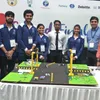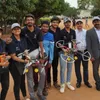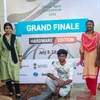On International Youth Day, take a look at student innovations tackling real problems in India
Harnessing modern technology, these engineering students have worked on a wide range of tech-driven solutions to problems relating to health, environment, among others.
This International Youth Day on August 12 is based on the theme “transforming education”. The United Nations is trying to put an emphasis on making education more relevant to everyday problems and the youth more involved in the process.
Closer home, the Indian government is also ensuring that young minds explore and tap their full potential.
At the recently held Smart India Hackathon - Hardware edition at 19 nodal centres across India, many students came together, brainstorming, and working on solutions to real problems, relating to health, environment, among others.

YourStory showcases some of the new-age technologies that take a stab at addressing critical issues and problem areas:
Air pollution
Team Elite Air Cops from the National Institute of Science and Technology, Berhampur developed a device that shows the air quality at any place live on a smartphone.
Leveraging Internet of Things (IoT), team leader K Pavan Kumar (22) and members K Ram Sai (21), Pallabi Mohapatra (21), Amisha Sahu (22), Sudhir Panda (22), and Bhabani Shankar Maharana (20) built a system that detects air pollutants and computes the air quality index (AQI) of a particular area. The information can be accessed live on phone and website.
While static is stationed in an area ascertaining the quality in that place, the mobility node must be installed on vehicles to check on places the person has travelled. This gives an in-depth gauge of the atmosphere a person travels through.
The mobile application is currently available for Android phones, and the web page is made keeping user convenience in mind. Apart from live AQI data, one can also look up a less polluted path on the trip.
The system, when tested on vehicles and in the college campus, rendered an accuracy rate of 90 to 95 percent.
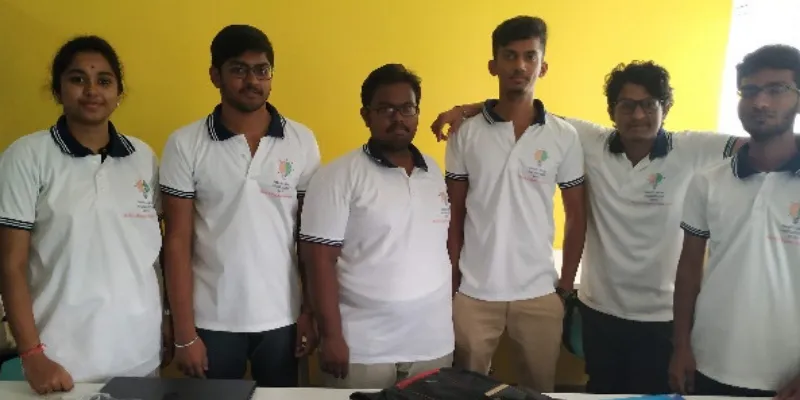
Team Dream Rushers
Cardiac arrest
Team Dream Rushers from Sri Manakula Vinayagar Engineering College, Puducherry, presented a nanotechnology gadget, which is an indigestible pill made of biomedical sensors. The pill tracks the body’s temperature, pH level, and heart rate.
Detecting heart attack nine minutes ahead, the technology gives time to take precautions that can save many lives. It alerts the user and their caretaker via message with the patient’s current location.
The students who worked on this project are Harene J (20), Bharath S (19), Chandru S (19), Surya S (20) and Jayalakshmi (20), and Pavethera (20).
1564728527845.png?fm=png&auto=format)
Team Innovation Geekz
Food packaging
Addressing a problem inherent to the people in their community in Bhimavaram where most people make a living from seafood, six students from Vishnu Institute of Technology developed an advanced food packaging technology that could detect the freshness of shrimp.
Making a digital version of the traditional boxes that are used for frozen shrimp packaging, team Innovation Geekz attached two sensors to the box that will detect the temperature and ammonia gas. The information will then be available on a mobile application developed by the team.
This innovation could prove helpful in long-distance exports of shrimp and help the non-coastal markets in India. Team leader G Phani Chandra (22) and members GSMK Rachel (21), M Prem Kumar (22), KA Dheeraj Neegar (22), B Sai Rakesh (22), and KSV Tarun (20) bagged prize money of Rs 50,000 at the grand finale.
Soil productivity in farming
Bringing innovation to the agricultural sector, Team Electronica built a device that measures soil productivity, and guides the farmer on which crop suits the land, thereby optimising farm production.
Medisetty Arun Sai, Aparna Kadiyam, Ramana Botta, Juluri Bharath, Jithin Sri Sai Kalangi, and Vinay Kumar Reddy Komma from Lovely Professional University harnessed machine learning (ML) and internet of things (IoT) and developed a device that can predict profitable crops for different types of soil or land and store the data on a cloud platform.
When attached to a moving tractor, it collects soil samples and studies on parameters like pH value, moisture content, temperature, and also micro-nutrient content like nitrogen, potassium, and sodium. Carrying the process across a field, the data is then updated on Google My Maps.
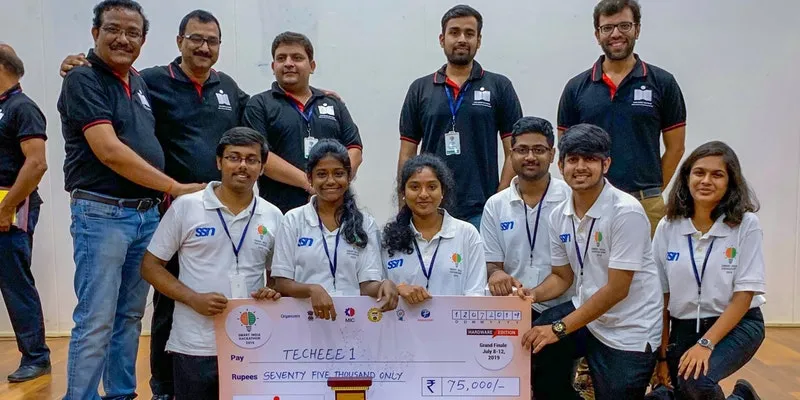
Team TECHEEE1
Water scarcity
A group of six students from SSN College of Engineering, Chennai, worked on the concept of IoT, chemical nature of compounds, and synthesis of Metal Organic Frameworks (MOF) and made it possible to generate water from thin air.
While this sounds like wizardry, the students were inspired by Omar Yaghi, a professor at MIT who founded the idea of the powder-like structure. A Metal Organic Framework (MOF) crystal is kept open during the night and in a transparent airtight container during the day. This way, MOF releases water due to evaporation.
Called the Team TECHEEE, the group included Ritika, Priyavasini R, Sharmila Shree G, Vignesh R, Sakthi Ganesh M, and Sriram Shreedharan, who believe this will be useful in regions that are experiencing severe drought.
Digital Braille for the visually impaired
Undergraduate students from MVJ College of Engineering in Bengaluru worked together on bBook, a handheld digital Braille reader for the visually challenged. The device works with any digital text format such as online news feeds or a PDF file and makes it readable in Braille.
To be aware of the surroundings, small Bluetooth devices are installed in public places and a bBook in its range can detect and deliver information in Braille.
A first of its kind, the team members Ruchitha DJ, Rohit Natesh, Srilekha S, Shreya J, Suresh Kumar Dhami, and Sandeep S wanted to ensure that visually impaired people do not have to compromise on their education and made sure more information from digital platforms is accessible to them.
Waste management
Bothered by overflowing dustbins in their community, a group of students from JSS Academy of Technical Education in Noida decided to act on the problem and developed a garbage monitoring device and a battery-powered pushcart.
1565532017037.png?fm=png&auto=format)
Prototype developed by team Brainyfool
The pushcart, running on 24-Volt battery and motor, will be used to collect waste from the source on time to replace traditional hand-pulled cart.
On the other hand, ultrasonic sensors attached to the monitoring device will detect the quantity of garbage in community bins. When it is full, it will alert the nodal centre from where a truck will be sent to clear it.
Rahul Bhatia (21), Siddharth Singh (21), Shubhanshu Singh (21), Shreya Mishra (21), Akanksha Singh (21), and Simran Gupta (21) who are members of team Brainyfools believe that this will improve waste management and disposing system in Indian cities.
The Smart India Hackathon (SIH) was launched by the government in 2017 to foster a strong spirit of innovation among young minds, especially students. It recently concluded its third chapter successfully.
YourStory brings to you the stories of some amazing young minds who have taken up the challenge of solving some of the country's problems.
(Edited by Saheli Sen Gupta)




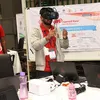
1564138444749.png?fm=png&auto=format&h=100&w=100&crop=entropy&fit=crop)
